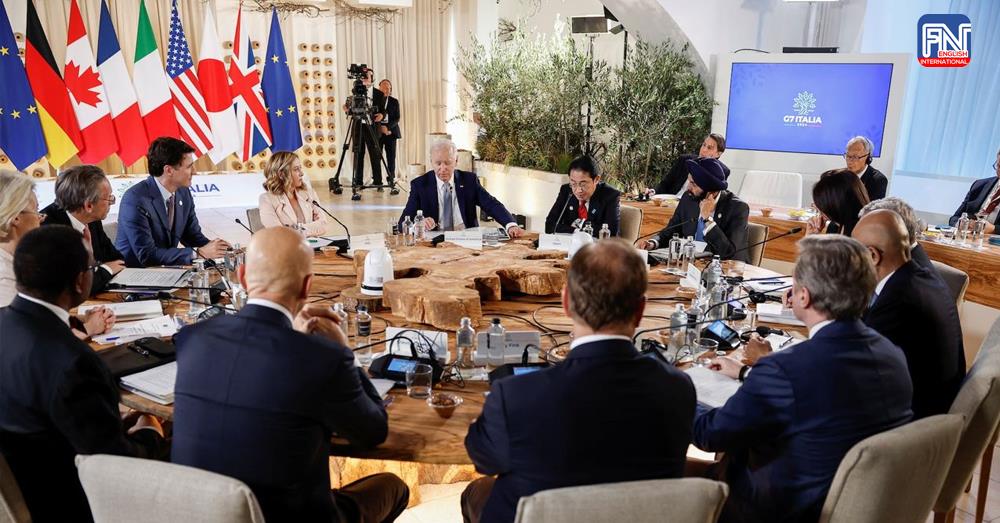BORGO EGNAZIA, Jun. 13 (Reuters) - Leaders of the Group of Seven major democracies agreed on an outline deal on Thursday to provide $50 billion of loans for Ukraine using interest from Russian sovereign assets frozen after Moscow invaded its neighbour in 2022.
The political agreement was the centrepiece of the opening day in southern Italy of the annual summit of G7 leaders, attended for a second successive year by Ukrainian President Volodymyr Zelenskiy.
He signed a new, long-term security accord with U.S. President Joe Biden after signing a 10-year security accord with Japan, with Tokyo promising to provide Kyiv with $4.5 billion this year -- underlining continued strong backing from the West.
Calling the frozen asset agreement a "significant outcome", Biden told reporters it was "another reminder to (Russian President Vladimir) Putin that we're not backing down."
The G7 plan for Ukraine is based on a multi-year loan using profits from some $300 billion of impounded Russian funds, the bulk of which are blocked in the European Union.
The technical details will be finalised in the coming weeks, with the new cash expected to reach Kyiv by the end of this year thanks to contributions from all G7 states -- the United States, Canada, Britain, France, Germany, Japan and Italy.
"This is a very clear commitment that should embolden the Ukrainians to do what they need to to defend their independence and sovereignty," said German Chancellor Olaf Scholz.
The aim of the deal is to ensure it can run for years regardless of who is in power in each G7 state - a nod to concerns that U.S. Republican presidential candidate Donald Trump may be much less sympathetic to Kyiv if he beats Biden in November's election, according to a person close to the talks.
Russia regards attempts by the West to take income from its frozen assets as criminal, foreign ministry spokeswoman Maria Zakharova said on Thursday, adding that Moscow's response would be very painful for the European Union.
Many of the G7 leaders are struggling at home but looked to project confidence on the world stage as they confront an array of problems, including China's economic ambitions, the growth of artificial intelligence and turmoil in the Middle East.
The leaders expressed their concerns about the situation on the Israel-Lebanon border and endorsed U.S. efforts to secure a ceasefire in the Gaza war, according to a draft communique due to be released following the summit.
In addition, they called on Israel to refrain from a full-scale offensive in the southern Gaza city of Rafah, "in line with their obligations under international law".
Western nations are also expected to voice both unanimous concern over China's industrial overcapacity, which they say is distorting global markets, and their determination to help African states develop their economies, diplomats said.
The G7 may have a very different complexion next year.
Biden faces an uphill battle to win re-election in November, British Prime Minister Rishi Sunak looks certain to lose power in a national election next month, while French President Emmanuel Macron dissolved his country's parliament on Sunday after his party was trounced in the European vote.
All smiled broadly as they greeted Italian Prime Minister Giorgia Meloni under a blazing Mediterranean sun at the entrance to the Borgo Egnazia resort where the summit is being held.
However, the display of unity was undermined late in the day, when Macron clashed with the anti-abortion Meloni over a push by Italy to remove any direct reference to abortion rights in the final communique.
More than a dozen outsiders will join the discussions on Friday, including the leaders of India, Brazil, Argentina, Turkey, Algeria and Kenya, while Pope Francis is due to speak about the risks and potential of artificial intelligence.

Photo from Reuters




